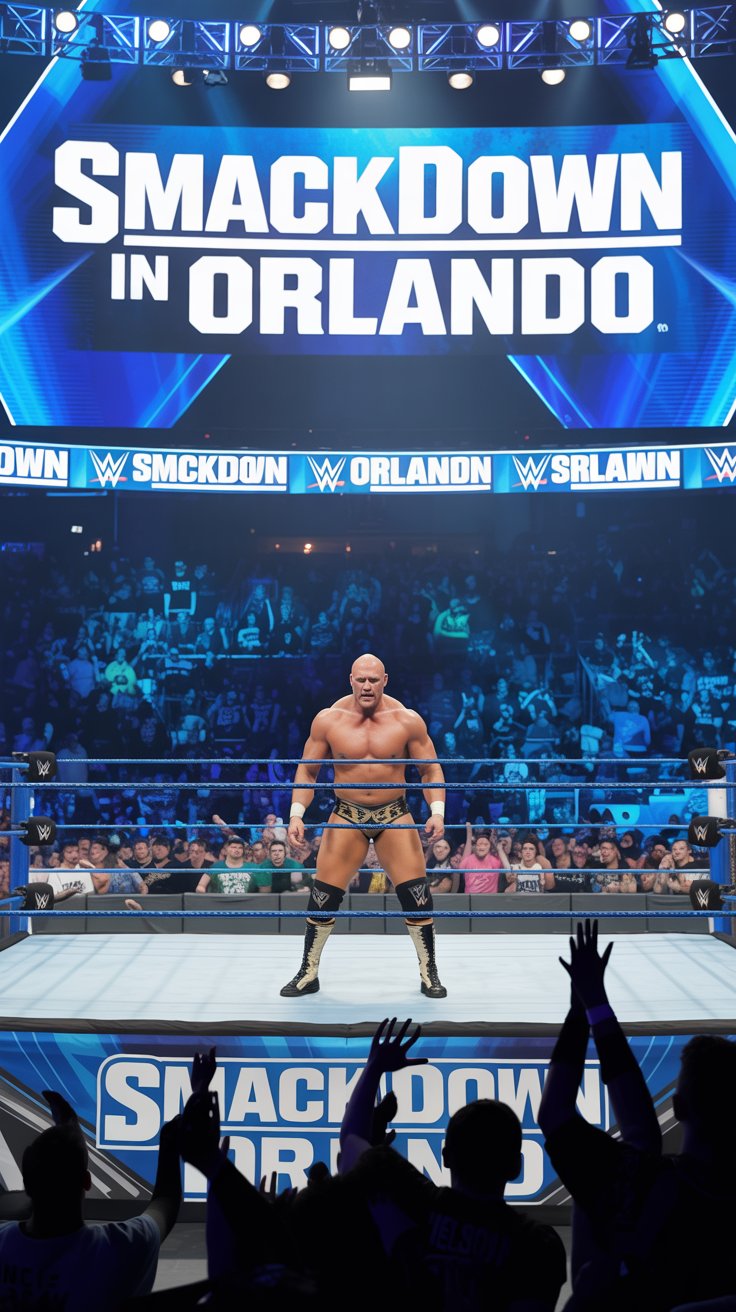
WWE’s live events are known for their dynamic nature, with last-minute changes often made to adapt to various factors.
Such was the case during a recent SmackDown taping in Orlando, Florida, where WWE reportedly altered several matches post-broadcast. These changes, affecting both televised and non-televised segments, have sparked discussions among fans and industry insiders alike.
This article delves into the reported changes, the reasons behind them, and their implications for WWE’s storytelling and fan engagement strategies.
Reported Match Changes After SmackDown in Orlando
During the SmackDown event in Orlando, WWE made several adjustments to the originally planned match lineup. These changes were evident in both the televised portion of the show and the dark matches that followed.
Tag Team and Singles Match Adjustments
One notable change involved the tag team division. A match initially planned as a straightforward tag team bout was reportedly expanded into a multi-team program. This decision was influenced by the Orlando crowd’s enthusiastic response to certain tag teams, prompting WWE to capitalize on this momentum by featuring more teams in the storyline.
In the singles competition, a match that was supposed to highlight a mid-card talent was restructured to elevate a rising star. This adjustment aimed to provide younger wrestlers with the spotlight while maintaining the momentum of established competitors.
Women’s Division Storyline Pivot
The women’s division also experienced significant changes. A segment initially planned to announce Asuka’s SummerSlam opponents during the show was instead revealed on social media. This shift led to Charlotte Flair facing IYO SKY in a match that was not originally scheduled. Flair’s victory and the subsequent attack by Asuka added a new layer to the ongoing storyline.
Reasons Behind the Changes
Several factors contributed to the decision to alter the match lineup after SmackDown in Orlando.
1. Audience Engagement
WWE places significant emphasis on live audience reactions. The enthusiastic response from the Orlando crowd to certain segments and performers influenced the creative team’s decisions, leading to adjustments in match outcomes and storylines to better align with fan preferences.
2. Health and Safety Concerns
Reports indicate that some talents were pulled from the show due to medical reasons, including potential COVID-19 exposures. These unforeseen circumstances necessitated last-minute changes to the match card to ensure the safety of performers and staff.
3. Evolving Storylines
WWE’s storytelling is fluid, often requiring adjustments to maintain narrative coherence and audience interest. The changes made in Orlando allowed for the introduction of new rivalries and the expansion of existing ones, keeping the product fresh and unpredictable.
4. Strategic Planning for Upcoming Events
With major events like SummerSlam on the horizon, WWE strategically modifies match lineups to build anticipation and develop compelling story arcs. The alterations in Orlando served to set the stage for future confrontations and plot developments.
Fan Reactions
The WWE Universe’s response to the changes was mixed. Some fans appreciated the unpredictability and the opportunity to see different matchups, while others expressed disappointment over the deviation from advertised matches. Social media platforms were abuzz with discussions, reflecting the passionate investment of fans in WWE’s storytelling.
Industry Perspective
Industry experts view WWE’s flexibility in altering match lineups as a testament to the company’s commitment to delivering engaging content. While such changes can pose challenges in maintaining narrative consistency, they also allow WWE to respond dynamically to real-time feedback and unforeseen circumstances.
FAQs
1. Why does WWE change matches after SmackDown?
WWE adjusts matches post-broadcast to respond to live audience reactions, address health and safety concerns, evolve storylines, and strategically plan for upcoming events.
2. How common are last-minute changes in WWE?
Last-minute changes are relatively common in WWE, reflecting the company’s adaptive approach to storytelling and event management.
3. Do match changes affect long-term storylines?
While some changes may alter immediate plans, WWE’s creative team typically works to integrate adjustments into the broader narrative arc, ensuring continuity and audience engagement.
4. How do fans react to such changes?
Fan reactions vary; some enjoy the spontaneity, while others prefer the predictability of advertised matches. Overall, changes often spark lively discussions and debates within the WWE community.
Conclusion
The reported changes to matches after SmackDown in Orlando underscore WWE’s commitment to delivering a dynamic and engaging product.
By responding to audience reactions, addressing health concerns, and strategically evolving storylines, WWE continues to adapt in real-time to maintain its position as a leader in sports entertainment.
While such changes may surprise fans, they also contribute to the unpredictable and exciting nature of WWE programming.






